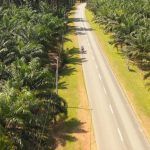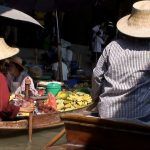In 2019, I volunteered in Kenya on a program called ‘Walk with Rangers’ which was created by conservationist and honorary warden Raabia Hawa.
It’s a program that offers someone the experience of what its actually like working as ranger on the ground, day in-day out- and contributing to saving Africa’s wildlife and forests.
Raabia, who’s a native Kenyan, gave up a successful career in TV to work with rangers in the field which all came about from an experience she had whilst still working in media. She was doing a story related to anti-poaching, when she suddenly came across a young freshly poached elephant. This naturally devastated her, hence, changed careers.
She created the Ulinzi Africa Foundation which is all about raising awareness of the challenges faced by rangers in their fight against poaching.
The first impression I had of Raabia was seeing this lovely, pretty, petit framed, soft spoken woman that has a very calm/energetic vibe about her.
On my second glance, what was quickly revealed, was the exorbitant amount of strength, passion, determination, and perseverance of a strong woman whose dedicating her life in protecting Africa’s wildlife.
Raabia is a powerhouse female warrior that puts herself in some of the most dangerous situations in the bush whilst working side by side with armed rangers, as they continue their efforts in preventing the poaching of wildlife throughout Africa which also includes tackling illegal woodcutting and coal-burning in rural communities.
The life of a ranger can be incredibly tough, challenging, and be ignored by the general public. What you don’t see, you don’t know. It’s one thing sitting around being sad about the poaching epidemic. It’s another thing taking- action and being a part of understanding what it really takes to be a ranger.
Typically, rangers start out at 7am, leave the camp on vehicle, get dropped off in the middle of the bush and continue on foot patrol. You navigate throughout the day in sharp thorny bush that continuously gets caught on your skin and clothes which leaves you covered with nasty scratches and cuts. By 9am the sun is sweltering, so you need to make sure you have plenty of water and sunscreen. And there’s little time for breaks.
I began to slowly understand how just the rangers work. They follow their intuition, have the knowledge of excellent tracking skills, and keen sense of smell. They’re daily patrols consist of tracking all day by listening for sounds of human activity, smells of illegal charcoal burning, sounds of wood chopping, any other illegal suspicious activities.
They can walk for miles, even days at a time and find nothing, and then suddenly, come across a snare that leads to many other snares, unknown footprints, the smell of rotting flesh of an animal, or the smell of charcoal burning. As Raabia says, every day is unpredictable in the bush and the rangers never know what they could face.
The poaching epidemic of African’s wildlife such as the elephant and rhino, has unfortunately evolved to such a highly sophisticated level due to today’s cutting -edge technology, and available weapons such as AK47s. And Poison arrows are still being used.
Wildlife needs to be thought of in a different value system for poaching to decline, and having more rangers on the ground is very much needed.
Walk with Rangers is an educational, valuable and treasured experience which will help anyone understand just what the rangers go through daily. For me it was another educational fjourney and experience in Africa, which I’ll do again.
Below is a link to the video I created whilst volunteering with Raabia, its essentially a promo of the program.
Enjoy!


